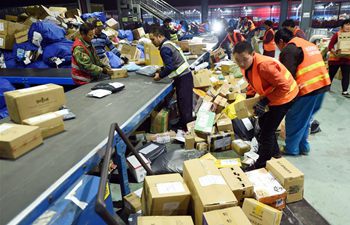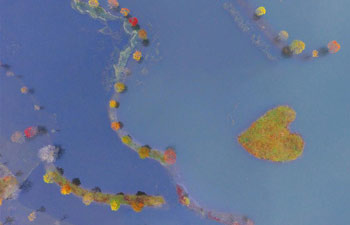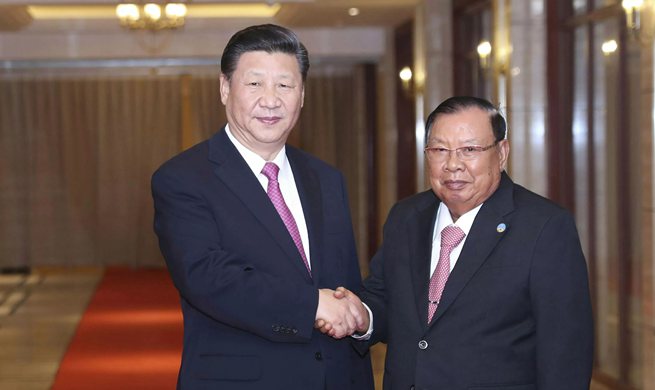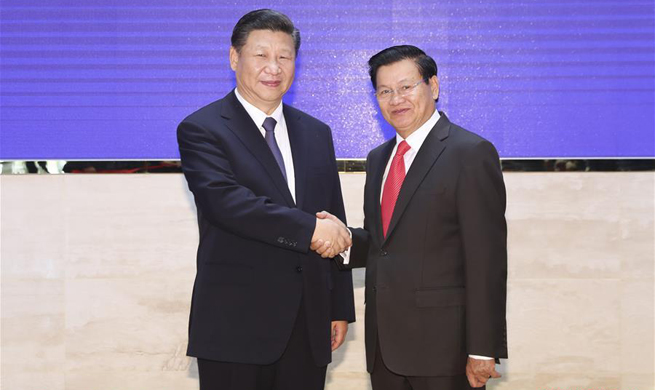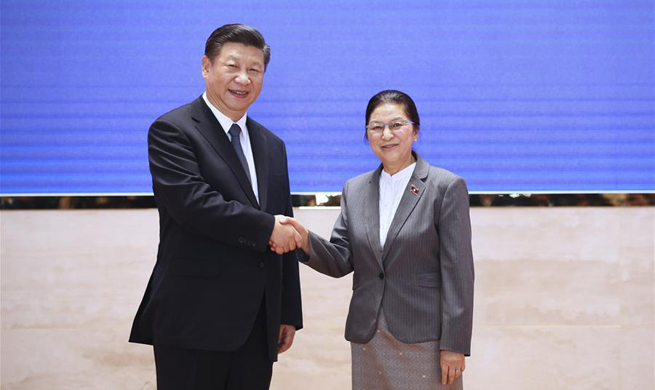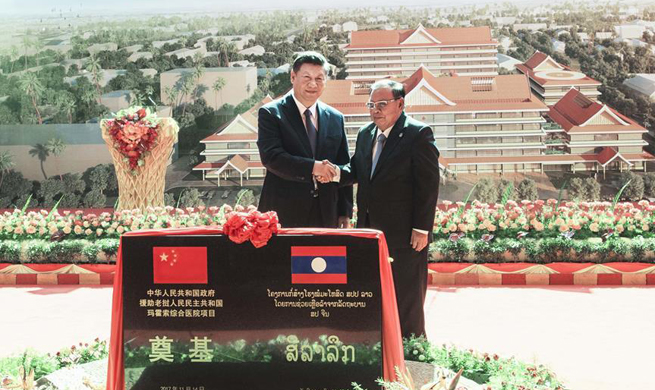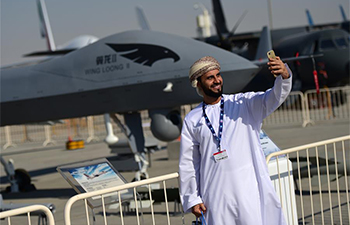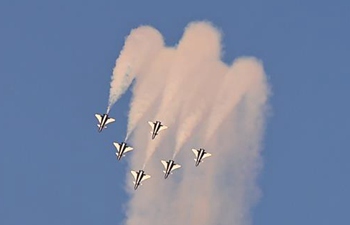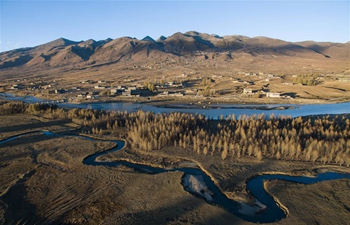ANKARA, Nov. 14 (Xinhua) -- As a regional player, Turkey has set its sights on space. An ambitious space program will constitute the backbone of a special agency which should be launched next year to determine policies and strategies in space and aviation technologies.
A draft bill to this effect penned by the ruling Justice and Development Party (AKP) of President Recep Tayyip Erdogan has been approved last week by a Parliamentary sub-committee and should be voted early next year at a plenary session, parliamentary sources said.
The bill which is expected to pass with the consent of the opposition in the fragmented Parliament defines the mission of this first Turkish Space Agency as primarily reducing dependence on foreign technology, coordination work for space programs and develop and launch aerospace systems.
The agency will reportedly combine the experience of similar institutions in the United States (NASA), Germany, France and Japan, according to the bill.
Turkey's efforts in space programs, essentially on launching and integrating satellites, has experienced problems these last years, expressly because of the coup attempt of summer 2016 who has shocked the NATO and G20 country and after which thousands of officers have been arrested or purged from the army and the intelligence services, two forces who needed the space program to work the most.
More than one year after this botched attempt, Ankara is more than ever determined to launch its own space agency which will be under strict civilian control.
"We signed a protocol of cooperation with Japan in order to launch our own national space agency. This way we will be able to consolidate our efforts in the fields of satellites and space technologies," stated Turkish Transport, Maritime and Communications Minister Ahmet Arslan during an international symposium in Istanbul on the weekend.
In September, Turkey and Japan signed a deal regarding satellite and space technologies. Under the deal, they will build an infrastructure of space technologies in Turkey over a span of six years. UBAKUSAT will be launched from Japan next year, and Japan will help train experts in space technologies and will also assist in establishing the Turkish Space Agency.
"This is a sign that Turkey's dreams are becoming reality," said the minister, adding that "We will be able in a short future to achieve thing that we couldn't even dream of in the past."
Turkey wants to increase its number of satellites to a total of 10 in 2023, in order to be able to operate and have direct communications links with some 90% of the world population through its own satellites.
Turkey has launched its first satellite in 1994, followed by two others in 1996 and 2001 supported by the European consortium Airbus facilities. Three other military and observation satellites where launched subsequently since 2012, bringing the actual number of Turkish satellites galloping in the earth's orbit to six.
Turkey aims to build its first fully indigenous satellite by 2019 and wants to invest more in software and design. Last week Ankara hosted SpaceX CEO Elon Musk who met President Erdogan to discuss cooperation between his companies and Turkish firms, including the launch of Turkish satellites.
Turkey hopes to launch satellites Turksat 5A and Turksat 5B in 2020 and 2021 with the support of world famous entrepreneur Musk's SpaceX.
Those two satellites will be launched into space by SpaceX's Falcon 9 rockets in the scoop of an agreement signed with Airbus Defense and Space Systems, told Minister Arslan to reporters.
In an article in the Al-Monitor media site, Metin Gurcan, a leading Turkish security expert, indicated that the lack of a national space agency is "a key institutional deficiency" and is hampering the country's efforts to assert fully its power in her region.
And Gurcan also asked if Turkey will be able to afford the massive funding needed for sustained space activities, explaining that she has allotted only 0.01% of its gross domestic product to space while this ratio is 0.25% in Russia and 0.23% in the United States.
There is also the problem of finding qualified people to offer jobs in the field. Nearly 500 people work actually in space field and "there is hardly any work being done in research and development," remarked Gurcan, a former special forces officer.
The Turkish Air Force, the apple of the eye of the Turkish army, had its fair share of blood loss after the failed coup where pilots and experienced personnel suspected of links with plotters have been jailed or dismissed, leading to a real anemia in this force and other aeronautical institutions.
The creation of a space agency is on the work since the early 1990's but didn't materialize for financial, political or practical reasons, military and civilian institutions having being unable to clear authority sharing issues.
But now that Turkey has transitioned from a parliamentary to a presidential system in the aftermath of a critical constitutional referendum in April, the president's authority and powers should settle these issues, according to official sources.
"There was never ending discussions on the project which was constantly delayed but now is seems that the project will finally see daylight in the coming months," indicated to Xinhua a former intelligence service employee who asked to remain anonymous.
"There is also more sensibility and increasing interest in the society for space research. We have to get ordinary people interested in these programs by means of awareness. Turkey has lost to much time because of internal feuding," he added.
In the framework of its own space agency and seemingly setting even higher goals, Turkey is working on sending the country's first ever astronaut into space in the coming years, Science, Industry and Technology Minister Faruk Ozlu said.
"We have contacted countries that have expertise in training astronauts," he told daily Hurriyet last week, adding that the cost of training a spaceman in Japan was 25 million U.S. dollars. "They train spacemen from scratch," he said.
Turkey will evaluate offers from Russia and the U.S., he informed, while adding that the government drafted a law on establishing space research authorities. Ozlu said Russia had trained a Syrian cosmonaut in the past, who later was sent into space with a Russian team.





